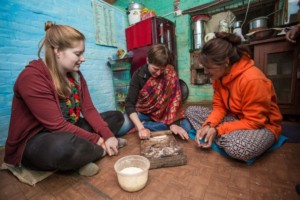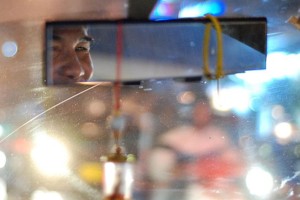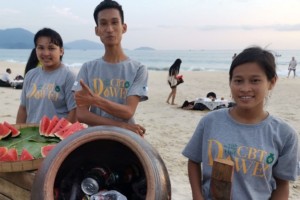Accessible tourism for all: The new mantra in Nepal
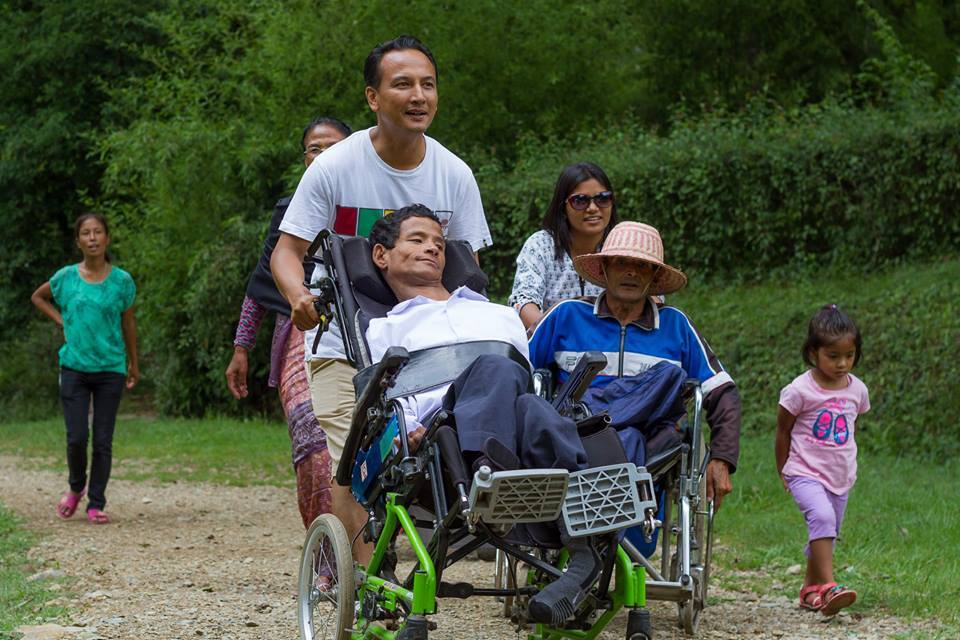
For people with disabilities Nepal was once a destination to avoid. This has changed. And quickly. In this “Good Tourism” Insight, Pankaj Pradhananga shares how Nepal’s reputation as an accessible and inclusive destination has rapidly ascended.
In the first episode of my talk show ‘Beyond Limits’, Jezza Williams from New Zealand shared his experience exploring Nepal as a person with a disability. When he was asked about the inclusiveness of Nepal, it was quite surprising and pleasing to hear him say that Kathmandu’s inclusivity was not just limited to accessibility but was also about hospitality. He fondly reminisced of the time when the locals of Kathmandu enthusiastically helped him delve into each and every nook of the city.
“Kathmandu is the most inclusive city I have ever been to,” Jezza asserted.
Generally speaking, Nepal is perceived to be a destination for adventure seekers and allocentric travellers (“allocentric” as defined for use in travel & tourism by Stanley Plog in his ‘Psychographic Model’). However, a good number of travellers have found Nepal absolutely stunning not only in terms of its natural beauty and unmatched hospitality, but also for its spirit of breaking barriers and promoting accessible tourism.
The late Dr Scott Rains — American travel writer, consultant, and advocate for people with disabilities — is an indispensable name in the evolution of Nepal as an accessible destination. Though Dr Rains was not the first traveller with a disability to explore Nepal, his trip in 2014 paved the way for many others.
At the invitation of the company I represent, Four Season Travel & Tours, Dr Rains came to Nepal and made a profound impact when he rolled his wheelchair to and through places very few travellers in wheelchairs had ever been. He did not just demonstrate to us the market opportunity in the untapped and growing segment, he also made the Nepalese tourism sector believe that it had the spirit of hospitality needed to serve the segment with heart.
Dr Rains was instrumental in helping connect the tourism sector of Nepal with the active leaders of local disabled people organisations (DPOs). These links enabled the necessary knowledge-sharing, cooperation, synergy, and camaraderie to make change. Accessible tourism, while certainly the right thing to do, is not easy!
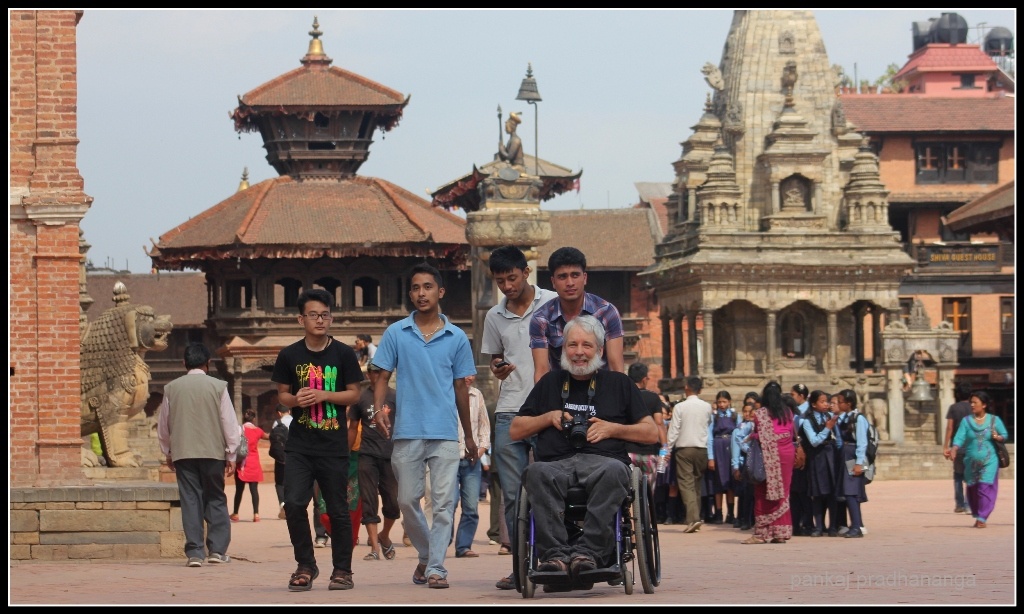
When the world saw the amazing pictures of Dr Rains relishing a variety of adventures in Nepal, it ignited interest among many people with disabilities in Nepal and abroad. Travellers who had earlier dismissed Nepal now started asking: “Why not?” Needless to say, since those days, many more differently-abled travellers have made it to Nepal — senior citizens, slow walkers, visually impaired, blind, amputees, hard of hearing, and quadriplegic travellers — intrigued by centuries-old culture, stunning natural landscapes and wildlife, the breath of crisp Himalayan air, and a sense of personal fulfillment.
In November 2019, a group of Nepali travel enthusiasts with disabilities got together and explored Patan city, a UNESCO World Heritage site. This was organised in the fond memory of Dr Rains on his birthday. Local cultural experts volunteered to show off the best kept secrets of the city’s predominantly Buddhist population. Local businesses sponsored breakfast. And the local authority went out of its way to build a temporary ramp to allow wheelchairs access to the Mul chowk (courtyard) of the Royal Palace for the first time. The event sent a clear message to Nepal and the world that tourism is good for society when it is practiced with the mantra of inclusion: ‘Tourism for all’.
Now, in 2020, the COVID-19 pandemic has brought the international travel & tourism business down to ground zero. Hundreds of thousands of small- to medium-sized enterprises worldwide have been ordered to close. An unprecedented drop in tourism-related employment may become the new norm. And the pre-COVID forecast for 2020 travel & tourism revenues in excess of USD 2.1 trillion (WTTC, 2020), representing jobs and dreams in the 100s of million, is now but a tease for what might have been.
But it is always darkest before the dawn. As destinations are again opening up with caution, the safety and good health of travellers will be the paramount concern for the host society, local DMCs, and international tour operators. As we open up to travellers again, it is important not just to restart tourism but also to reinvent it with a focus on a more sustainable and more accessible tourism.
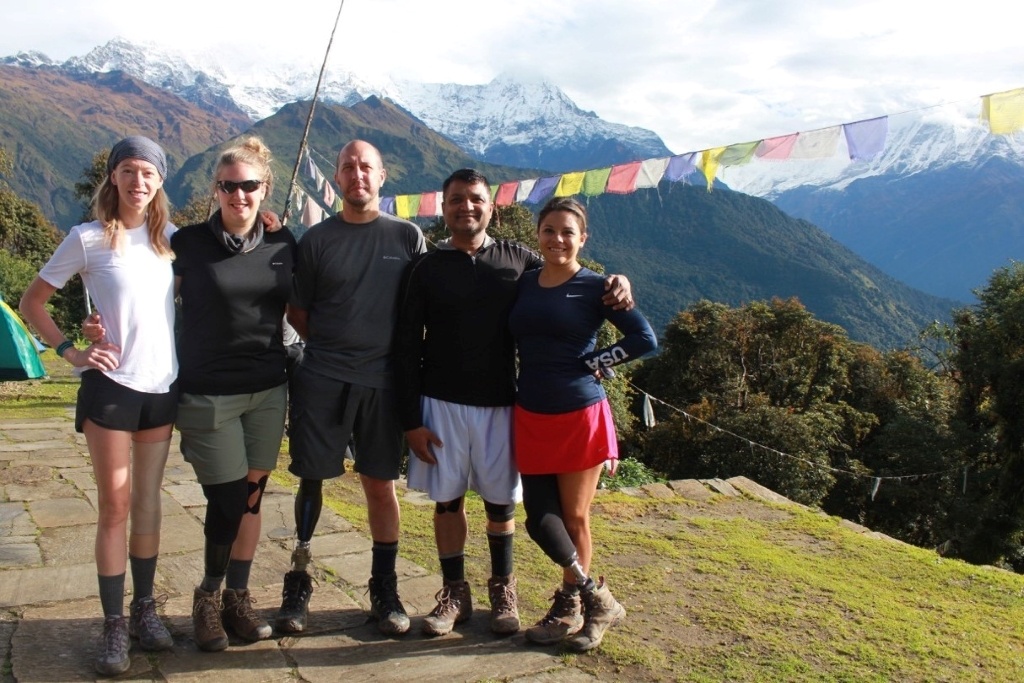
Nepal started welcoming international travellers for climbing expeditions and trekking — with entry protocols — from October 17. The destination is ideal for post-pandemic travel with its wide-open outdoor spaces and natural, cultural, and spiritual experiences. In terms of accessibility and universal design compliance in its hotels, public places, and monuments, Nepal is still very much a work in progress. However, the spirit of hospitality is freely flowing across the nation. And it makes travellers forget the lack of ramps and accessible accommodation outside Kathmandu valley.
I am sure Nepal will evolve very quickly to become an inclusive and accessible destination — with even more resilience than before — that will cater to the thrill of travelling for all. Who knows? On your next visit to Nepal, you may see Jezza paraglide by as you take in a breathtaking view of Annapurna … Namaste!
What do you think? Share a short anecdote or comment below. Or write a deeper “GT” Insight. The “Good Tourism” Blog welcomes diversity of opinion and perspective about travel & tourism because travel & tourism is everyone’s business.
Featured image (top of post): The author, Pankaj Pradhananga, pushes a wheelchair. © Four Season Travel & Tours
About the author
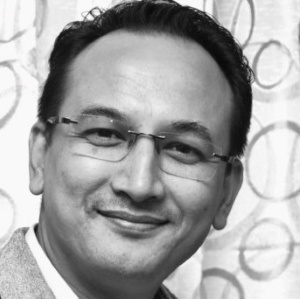
Pankaj Pradhananga is an experienced professional with more than two decades of experience in the adventure and tourism industries. As director of Kathmandu-based Four Season Travel & Tours, Pankaj pioneered accessible tourism in Nepal for travellers with disabilities. To that end he has built partnerships with international institutions, policy makers, local governments, and the private sector.
Pankaj is also a consultant / trainer for Washington DC-based International Development Institute and a faculty member at ACE Institute of Management in Kathmandu. He has spoken in various workshops and conferences on accessibility, inclusion, and resilience in Nepal, Europe and the USA, and led training programs on public speaking, leadership, and personal development.
Pankaj is the charter president of the Tourism Toastmasters Club in Nepal. He holds a MBA from Kathmandu University School of Management.


